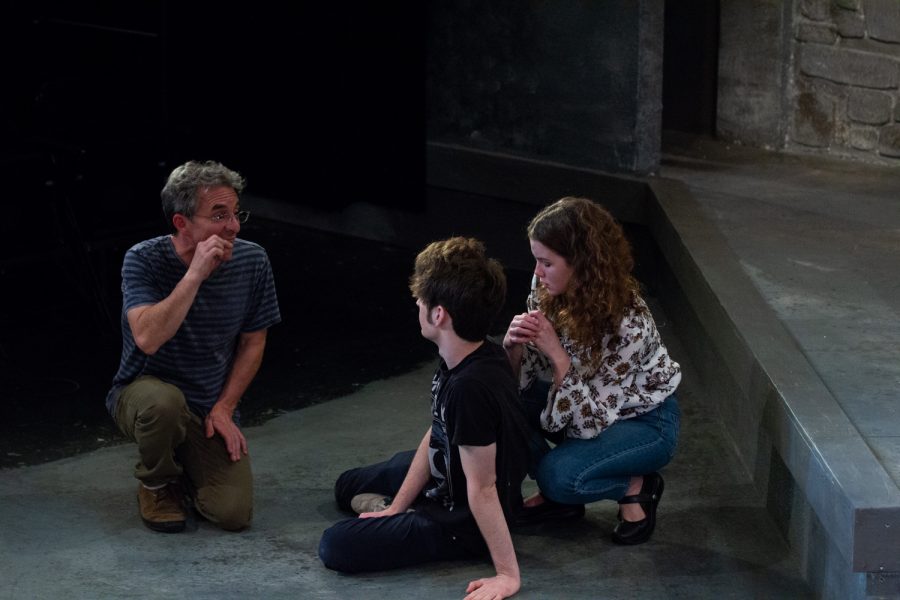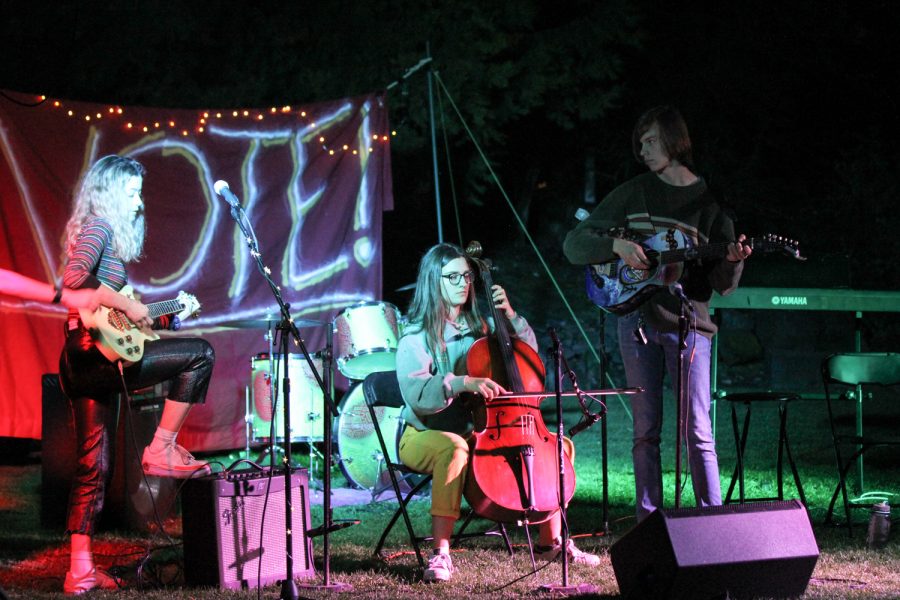If you want to start a video arcade, you first need game cabinets.
The component parts of basic arcade cabinets are simple: plywood wrapped in printed vinyl siding, a video display and no more circuitry than a home PC. As a whole, they can be incredibly expensive. Arcade-ia, which opened on Main Street in late April of this year, takes pride in their cabinets. While most cabinets retail between $400 and $1,000, Arcade-ia purchases theirs from private collectors from the Tri-Cities and as far away as Portland, which inflates the prices.
Many of Arcade-ia’s cabinets required extensive retrofits for their games. A Dance Dance Revolution machine can cost $5,000 and an Addams Family pinball machine can retail for between $4,000 and $10,000. Some will sell for as much as $12,000. These pricy games demand more adjustments. This is where Lucas Smith comes in. Smith works as Arcade-ia’s resident electrician and technician.
“I’ve always just been really good at fixing,” said Smith. “I’ve actually been an automotive technician for the last ten years, and I specialized in electric repair.”
Unique cabinets aren’t the only area where Arcade-ia stands out. Many businesses rent preset machines from a parent company, preventing the businesses from making their own repairs and adjustments. But because Arcade-ia owns their own machines, the staff is free to repair and tinker with them in-house.

“[The game] Killer Instinct –– when we got it –– was completely gutted and there was nothing of it except for the side art,” said Smith. “It didn’t even have … the framework for the game … It wasn’t that rigid. [We] put together an all-new playdeck, got all the boards, got the hard drives, got a new screen in it, all new wiring.”
That wasn’t the first time that Arcade-ia had to completely revamp a game.
“The Simpsons [arcade game] too –– that used to be a completely different game,” said Andrew Largent, one of Arcade-ia’s owners. “We totally revamped that, bought a brand new board and all that vinyl, and wrapped it and everything too.”
Yet purchasing the games also creates problems. Along with gutted machines, many of the games come complete with years of dirt and grime, requiring extensive cleaning before they are considered presentable to the public.

“You get inside of [the game] and the whole inside is covered in nicotine, dirt, hair,” said Smith. “You get inside it and it’s oh-so gross.”
Long before Arcade-ia’s inception, the Largents had talked about starting an arcade.
“You know those jokes you kind of toss around and then it finally actually becomes a reality?” said Laurie Langent, Andrew Largent’s wife and business partner.
Mr. Largent and Smith graduated from Walla Walla High School in 1999 and 2000, respectively. High school friends, they found the social scene in the town lacking in options for young kids. The skate parks –– a particularly popular pastime –– were at the edge of town.
“I know there’s not much to do around here for kids and stuff,” said Largent. “I got fed up with it when I was younger.”
After graduating, both Largent and Smith worked in separate vocations but each felt that they still wanted to make a difference. Largent, who ran a delivery company before opening Arcade-ia, said he had “felt really drained, and didn’t like what [he] was doing.” Frustrated by a back injury and “being under the thumb,” he decided to go into a business for himself.
Enlisting his wife and his old friend Smith, Largent decided to open Arcade-ia. He just needed to find some game cabinets.
















